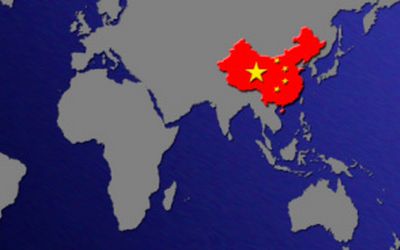CHINA and Africa are working together to double two-way trade to $400bn by 2020, Chinese officials say after the latest high-level visit to Africa.
Premier Li Keqiang announced an extra $12bn in credit to African countries during his May 4-11 tour which took him to Ethiopia, including the African Union Commission, Nigeria, Angola and Kenya.
South Africa’s elections on May 7 prevented a visit to one of China’s most important allies but Beijing’s political leadership will be back in South Africa in 2015 when Cape Town will host the Forum on China-Africa Co-operation (Focac), the regular forum between the two sides whose relationship has grown by leaps and bounds over the past 15 years.
China is now Africa’s biggest trading partner with the volume reaching $210bn in 2013.
"China will work with Africa to grow China-Africa trade volume to $400bn and China’s direct investment in Africa to $100bn by 2020," a Chinese government statement said.
China’s embassy in Pretoria held a news conference on Wednesday, mainly about Premier Li’s African tour. Spokeswoman Wei Xin said more regular media events would follow, reflecting the burgeoning relationship with South Africa and mounting interest about economic and other links. The embassy estimates that the number of Chinese citizens resident in South Africa has reached about 300,000.
"We have more than 110 big or major Chinese businesses in South Africa — in mining, manufacturing, real estate and big cooperation in the agricultural field," Ms Wei told South African and Chinese journalists.
"Generally speaking, the companies are strictly following South African rules and legislation," she said, including those governing Black Economic Empowerment (BEE).
One indicator of the growing ties is that in 1999 there were 19 Chinese students in South Africa. Today there are 2,200, Ms Wei said. The number of South African students in China has grown but much more slowly, to about 400.
One of China’s global mantras in international relations is that it does not interfere in the internal affairs of other countries. But Ms Wei did at least acknowledge the outcome of South Africa’s polls.
"We look forward to working with the new South African government," she said.

Picture: THINKSTOCK
CHINA and Africa are working together to double two-way trade to $400bn by 2020, Chinese officials say after the latest high-level visit to Africa.
Premier Li Keqiang announced an extra $12bn in credit to African countries during his May 4-11 tour which took him to Ethiopia, including the African Union Commission, Nigeria, Angola and Kenya.
South Africa’s elections on May 7 prevented a visit to one of China’s most important allies but Beijing’s political leadership will be back in South Africa in 2015 when Cape Town will host the Forum on China-Africa Co-operation (Focac), the regular forum between the two sides whose relationship has grown by leaps and bounds over the past 15 years.
China is now Africa’s biggest trading partner with the volume reaching $210bn in 2013.
"China will work with Africa to grow China-Africa trade volume to $400bn and China’s direct investment in Africa to $100bn by 2020," a Chinese government statement said.
China’s embassy in Pretoria held a news conference on Wednesday, mainly about Premier Li’s African tour. Spokeswoman Wei Xin said more regular media events would follow, reflecting the burgeoning relationship with South Africa and mounting interest about economic and other links. The embassy estimates that the number of Chinese citizens resident in South Africa has reached about 300,000.
"We have more than 110 big or major Chinese businesses in South Africa — in mining, manufacturing, real estate and big cooperation in the agricultural field," Ms Wei told South African and Chinese journalists.
"Generally speaking, the companies are strictly following South African rules and legislation," she said, including those governing Black Economic Empowerment (BEE).
One indicator of the growing ties is that in 1999 there were 19 Chinese students in South Africa. Today there are 2,200, Ms Wei said. The number of South African students in China has grown but much more slowly, to about 400.
One of China’s global mantras in international relations is that it does not interfere in the internal affairs of other countries. But Ms Wei did at least acknowledge the outcome of South Africa’s polls.
"We look forward to working with the new South African government," she said.






















Data supplied by Profile Data
Data supplied by Profile Data
Data supplied by Profile Data
Data supplied by Profile Data